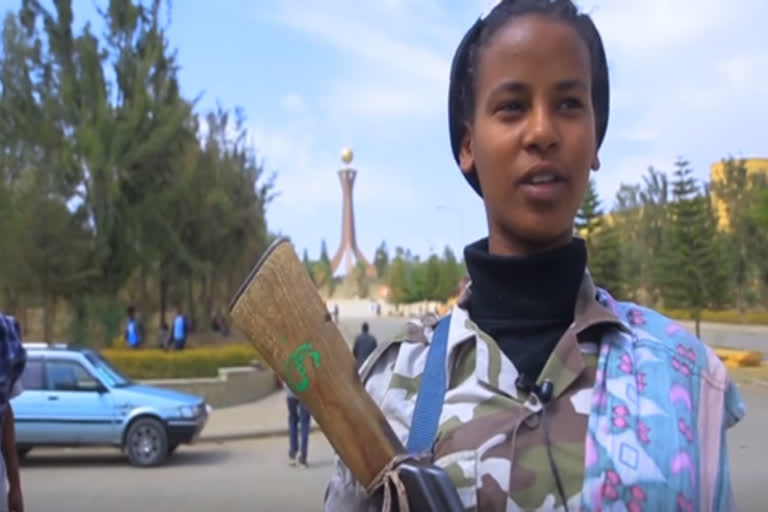Ethiopia:The 16-year-old girl hoped to go to war. Inspired by the sight of resurgent local forces marching in to retake the capital of Ethiopia’s Tigray region six months after being forced to flee, Meron Mezgeb waited in a crowd seeking to get a gun and join them.
“I came here because I saw girls like me being raped” by combatants, she said. “I actually wanted to go (fight) at the beginning but I was told I was too young. But because I saw my comrades come, I came here to fight alongside them.”
The scenes of jubilation and determination in the city of Mekele, in video obtained by The Associated Press and smuggled out of Tigray days later, are a rare look at the dramatic turn in a conflict that has threatened to destabilize one of Africa’s most populous and powerful countries.
After months of fear in a city occupied by Ethiopian soldiers and forces from neighboring Eritrea who pursued the Tigray regional leaders, crowds of Mekele residents rushed to the local security bureau to sign up to fight.
They were buoyed by the striking sight of a long parade of thousands of Ethiopian soldiers now held as prisoners of war, and by Tigray leaders walking openly in the city again. Residents lining the streets jeered the prisoners, and cheered their leaders.
The Tigray leaders have rejected a unilateral cease-fire that Ethiopia’s government announced as its soldiers retreated from Mekele, and they have vowed to chase “enemies” out of the rest of the Tigray region. With the retreat of Ethiopian and Eritrean forces, that means fighting against forces from the neighboring Amhara region who seized large parts of western and southern Tigray during the eight-month war.
Obtained by The Associated Press and smuggled out of Tigray, a rare look at scenes of jubilation in the city of Mekele. (AP Video)
“The fighting will not be limited simply to the Tigray borders” if needed, the Tigray president, Debretsion Gebremichael, said in an interview. “We have to have some guarantee that they will not come back again.”
While the Tigray forces now control large areas, the region has remained largely cut off from the world, with transport and communications links severed or blocked. After months of looting and destruction that witnesses have blamed on Ethiopian and allied forces, the United Nations is still highly concerned about the fate of millions of civilians as food runs short amid famine conditions.
Only on Monday, days after Ethiopian Prime Minister Abiy Ahmed told the U.N. secretary-general that Tigray would be open to “immediate” aid, did the U.N. World Food Program announce that 50 trucks of badly needed supplies had rolled into Mekele. Two weeks had passed since such aid last arrived, and the WFP warned that “double this number of trucks needs to be moving in every day to meet the vast humanitarian needs in the region.”
For residents, the U.N. convoy was a welcome sight. But the months of conflict mean a return to normal is still far away.
“I am a driver,” said Hiluf Abrha, another resident hoping to join the Tigray forces. “Because the Amhara forces committed a lot of atrocities, because they killed my uncle, I parked my truck and came here to register so that I can join the struggle.”
